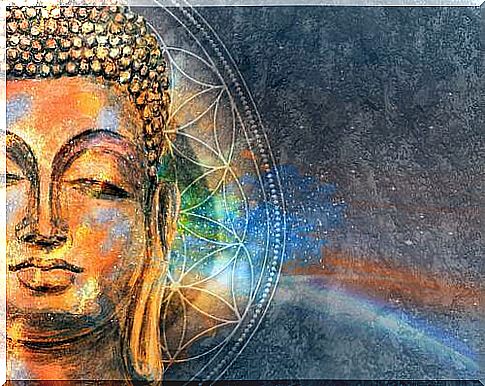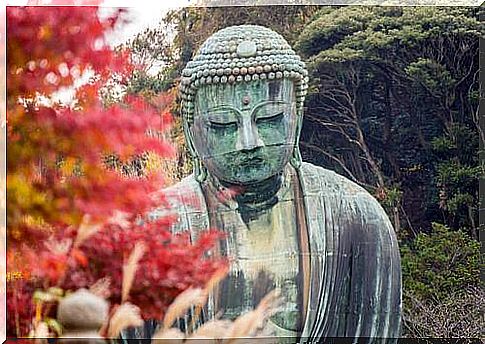Love According To Buddhism

Love according to Buddhism is totally different from love according to the West. In the first context, it is defined as a pure feeling that is given to another living being in a disinterested way, also feeling the absolute well-being in knowing that it did not cause pain or suffering to anyone, but collaborated to generate joy in the other.
In the West, love is an ambivalent concept that requires the presence of the other person, reciprocity and belonging. It can be considered ambivalent because, while on the one hand it requires the satisfaction of others’ desires, on the other, no less important, it focuses on the self. We speak, therefore, of a “less disinterested” love.
Here we find two concepts that, in the words of Sigmund Freud, although the love object seeks to be protected, it must also be preserved as its own and can be the target of offenses and complaints as it is separated from itself.
This happens because the life and death drives have a dialectical relationship to each other. It is not possible to conceive of love as separate from hate. Precisely, according to psychoanalytic theory, the life drive, which seeks to unite and conserve, is linked to the death drive, which seeks to destroy and separate. Both have the property that they feed back naturally.
The main characteristics about love according to Buddhism
Love according to Buddhism has nothing to do with the conception established in the West. In fact, one of their fundamental characteristics is the ability to feel compassion for others. In this way, all living beings would have to be absolutely respected.

Furthermore, the Buddhist conception establishes that the intention of love should be the same as the faith, which it seeks to illuminate, which would also allow the release of the suffering that surrounds Western love. It is a genuine desire for good in relation to the other, sharing one’s energy and resources.
Kindness and benevolence as a significant part of love
Love according to Buddhism is characterized by kindness and benevolence, but without having to cling to the person, which is definitely what a posteriori causes suffering. To practice love according to Buddhism it is not necessary to cling to anything, because this is an impossible task: nothing remains static, everything changes and changes.
The doctrine states that happiness and fullness reside only within and can only be shared from this place, but never in its entirety: dependence is not part of their philosophy.
Love according to Buddhism assumes that it is inexhaustible, since the energy it offers belongs to the cosmos and not to the individual itself. If love does not have the aforementioned characteristics, Buddhism establishes that there is a selfish projection of one’s needs.

Really happy for the other, without any kind of suspicion, is another characteristic that would define true love. Lastly, it must be balanced and measured, so that it cannot convulse the soul and turn into dependence.
Understanding true love in relation to another human being from an oriental point of view is perhaps a difficult task, due to all the cultural baggage we receive and naturalize throughout life. However, trying to practice it is an excellent way to enjoy everything we are able to offer.









